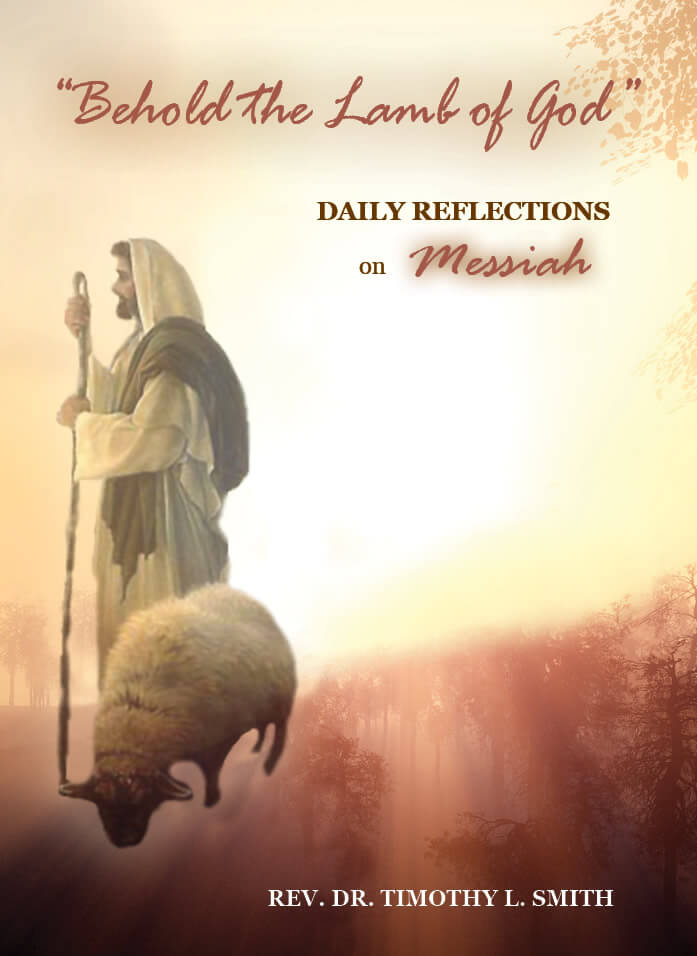As you read and reflect on today’s Holy Week devotional, please listen to this track from “Messiah”.
“Since by man came death by man came also the resurrection of the dead. For as in Adam all die, even so in Christ shall all be made alive.”
I Corinthians 15:21-22
TEXT
During the Second World War C. S. Lewis commented that “War does not increase death – death is total in every generation”. Try as we may, we cannot escape or deny death’s inexorable hold. George Bernard Shaw was right: “The statistics on death are quite impressive. One out of one people die”. I remember in the first days of philosophy class being presented with the ancient syllogism: “All men are mortal, Socrates is a man; therefore Socrates is mortal”. Therefore, I am mortal; death is the tragic reality for all born to Adam’s race.
Yet, in today’s Biblical text the Apostle Paul holds forth another and greater reality than the death for all who are in Adam: “even so in Christ shall all be made alive”. In I Corinthians 15, the great Biblical text on resurrection life, Paul is demonstrating that Christ’s resurrection guarantees the believer’s resurrection. In the previous verse (I Corinthians 15:20) Paul proclaimed Jesus the “firstfruits” of resurrection life. Jesus’ resurrection makes certain the believer’s resurrection. As those born into Adam’s race die, so those born into Christ come alive forever. They are joined to His resurrection life.
The German theologian Helmut Thielicke wisely observed that “One might reduce the Gospel to the simple formula that at the very deepest level Jesus Christ unites the destiny of men with his own”. The Son of God came down to become part of Adam’s race. He forever joined Himself to us that He might become our Kinsman Redeemer, paying redemption’s price to set us free from the reign of sin and death. On the cross He paid the “wages of sin” (Romans 6:23).
What Messiah did for us means that Christ’s position before the Father has become our position. Did Jesus die? Then so did I! Was Jesus raised from death? Then so will I, the believer! Follow Paul’s inescapable logic of resurrection:
But God, who is rich in mercy, for his great love wherewith he loved us, even when we were dead in sins, hath quickened us together with Christ, (by grace ye are saved;) and hath raised us up together, and made us sit together in heavenly places in Christ Jesus” (Ephesians 2:4-6).
Notice that the two “alls” in today’s Biblical text are conditioned by two prepositional phrases: “in Adam all die”, and “in Christ shall all be made alive”. The critical, determining phrase here, is “in Christ”. We are born into this world “in Adam”, sharers in the universal human condition of sin and death. But to be “in Christ”, is to open up our lives to Him, which is to forever share His life and victory. To live without Christ is to die, but to die with Christ is to live eternally. “Because I live,” Jesus promises, “ye shall live also” (John 14:19). Yes, life!
MUSIC
It is appropriate that this movement is sung by the choir as the text is about the universality of death in Adam as well as the universality of life in Christ. All the voices of the choir combine to suggest the two “alls” of the text.
The contrasts between life in Adam and life in Christ furnish Handel opportunity to write contrasts into the music, and they are striking and dramatic. Handel relishes in pointing out the differences between life in Adam and life in Christ.
The first notable difference is heard in the death section as it is sung a cappella while the resurrection section is sung accompanied by the orchestra. This is significantly the only place in Messiah where the choir sings a cappella. While listeners today are used to hearing a cappella singing, it would have been unique in Handel’s time. Calvin Stapert points out the implied meaning of the choir singing a cappella: “So with no instruments at all, something essential was missing; this music sounded empty even disembodied, compared to the full-bodied sound of the voices with accompanying instruments”.
Other contrasts between death and resurrection are just as striking to the ear. The death section is in the minor key and dissonant, while the resurrection section is in the bright major key and consonant. Handel designated the death section to be sung “grave” (slow), suggesting a ponderous, death march to the grave, while the resurrection section is “allegro” (fast), denoting the vitality and sparkle of resurrection life. The death section is “soft”, funereal, while resurrection life is celebrated with loud, “forte” strength. Finally, the death section is written in long notes that drag, suggesting weight and burden, while the resurrection section is in short, lively, spirited notes.
PRAYING MESSIAH
- What do you sense that God might be saying to you in today’s Scripture text and music from Messiah?
- What do you want to say to God?
- Now take a few moments to be still in God’s presence.



